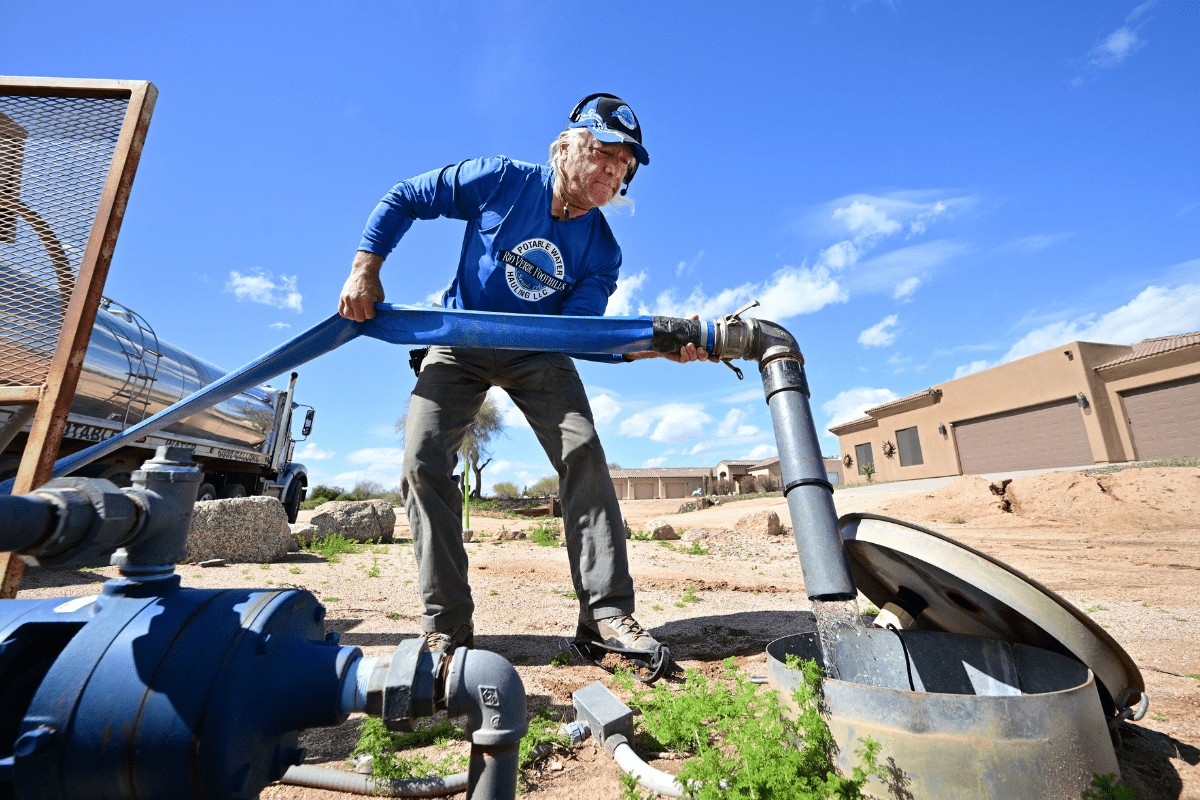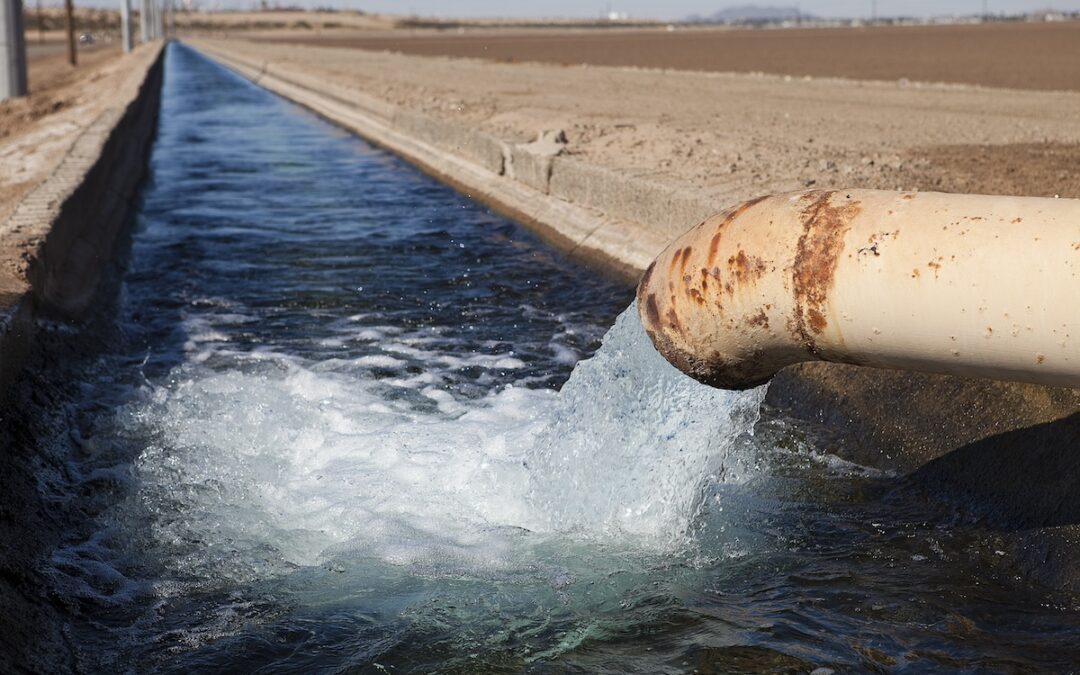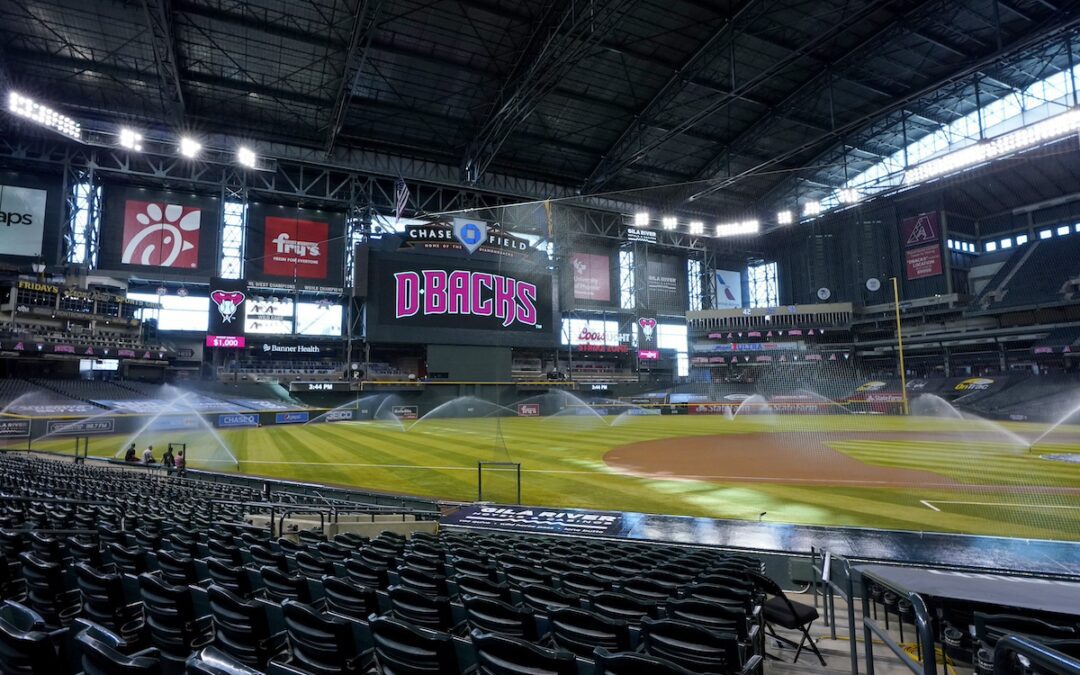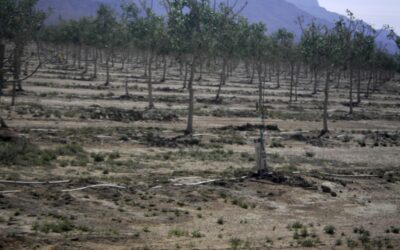
John Hornewer delivers water from his truck to a residential water tank in Rio Verde Foothills, Arizona, on February 23, 2023. - Homes in fast-growing Rio Verde Foothills have never had running water -- there are no mains pipes -- so the 500 households without access to their own wells bought tankerloads from Scottsdale. (Photo by Frederic J. Brown/AFP via Getty Images)
Three events relating to water conservation dominated the conversation in 2023: wildcat subdivisions, foreign farms extracting Arizona’s groundwater, and Colorado River restrictions.
While an agreement has been reached between states that draw from the Colorado River, long-term solutions for deep-water drilling and wildcat subdivisions have remained out of reach.
But this year, they look to be among the top priorities for state lawmakers.
Wildcat subdivisions
One wildcat community, the Rio Verde Foothills, lost its access to water entirely in 2023, requiring the state to step in and work with communities and water providers to find a solution. Residents have water again, and infrastructure projects are in the works to prevent another shutoff, but the loopholes that allow developers to circumvent water reserve requirements are still on the books.
Gov. Katie Hobbs reiterated her desire to close these loopholes at the beginning of the 2024 legislative session, telling lawmakers that the state’s ability to manage its water supply is key to maintaining a strong economy.
“Our water rules give families and businesses confidence to invest in our state,” Hobbs said. ”We cannot continue to let individuals and corporations exploit these loopholes and rob us of our water future.”
No legislation has been introduced yet to prevent developers from skirting water requirements.
Protecting Arizona’s groundwater
Legislation has been introduced to address corporations’ use of the state’s groundwater reserves—but instead of reigning in unchecked use of the state’s water, three bills by Rep. Gail Griffin, R-Hereford, aim to protect those doing the drilling.
Cochise County voters approved a ballot initiative in 2022 to begin regulating their groundwater usage through the creation of an Active Management Area (AMA) for the Douglas Basin. The decision was made as many wells in the region had begun to dry up, which residents attributed to the lack of regulation surrounding groundwater use.
The 2022 ballot initiative outlined a plan for the AMAs to take full effect by 2027, but Griffin’s House Bill 2016 would allow residents to apply for grandfathered rights to pump water. Another bill, HB 2099, would allow those living in the new AMA to only be restricted to pumping as much water as however much they had used in previous years. This bill failed to pass out of committee.
Other rural parts of Arizona without water regulation have seen similar problems as what Cochise County residents have experienced with the Douglas Basin. In La Paz County, foreign-owned farms have been allowed to extract groundwater for free for nearly a decade, depleting the state’s water reserves and causing towns to sink into the earth.
Aside from Griffin’s legislation, which has already passed along party lines in the House Natural Resources, Energy, and Water Committee, there has been no substantial legislative action to protect the state’s groundwater reserves.
The Hobbs administration terminated the leases of the land where the drilling took place in some regions, but others remain.
Hobbs called for the legislature to give rural communities more control over groundwater in their regions, so they could restrict or prevent outside entities from drilling wells and taking their groundwater.
Support Our Cause
Thank you for taking the time to read our work. Before you go, we hope you'll consider supporting our values-driven journalism, which has always strived to make clear what's really at stake for Arizonans and our future.
Since day one, our goal here at The Copper Courier has always been to empower people across the state with fact-based news and information. We believe that when people are armed with knowledge about what's happening in their local, state, and federal governments—including who is working on their behalf and who is actively trying to block efforts aimed at improving the daily lives of Arizona families—they will be inspired to become civically engaged.


FEMA disbands youth council, but students say their climate advocacy won’t stop
An Arizona teen earned a spot on FEMA’s Youth Preparedness Council to fight for climate action. Now, he’s watching the program get dismantled. After...

Longtime lawmaker shapes the debate as Arizona grapples with dwindling water supplies
PHOENIX (AP) — Throughout two decades marked by drought, climate change and growing demand for water, Arizona’s leaders have fiercely debated an...

As a government shutdown looms, Arizonans demand government action
As Arizona faces a defining budget decision and a potential government shutdown, community members feel like their voices aren’t being heard. The...

Arizona Legislature approves bill that would provide up to $500 million for Chase Field renovations
PHOENIX (AP) — The Arizona Diamondbacks are one small step from securing up to $500 million to help with renovations to the team's downtown home...





